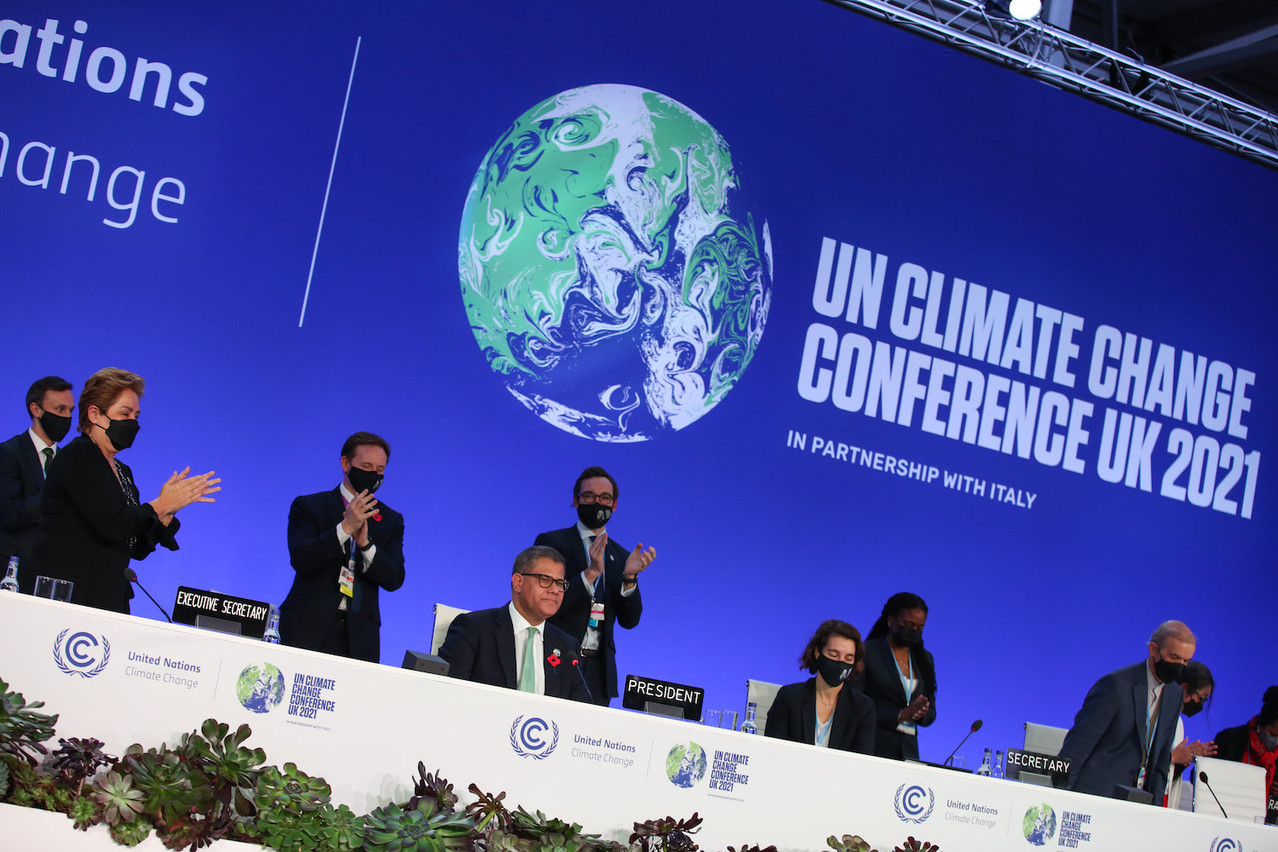Cop26 was en route to ending with an agreement by 197 countries to phase out coal power but China and India at the last minute pushed to water down the language to “phase down” coal use.
“I was disappointed,” said Dieschbourg of the change, explaining that this came after negotiations had already concluded and the text was ready for adoption in the plenary. On a more positive note, she said it’s the first time that coal is included in a Cop pact. “The global community committed to defending the 1.5°C goal,” she said. “For many island nations this is a question of survival.”
Alok Sharma, who presided over the climate summit on behalf of the UK hosts, fought back tears as the Cop26 deal--the Glasgow climate pact--was agreed. “I apologise for the way this process has unfolded and I am deeply sorry,” he said. “I also understand the deep disappointment, but I think, as you have noted, it’s also vital that we protect this package.”
China in September had announced that it would no longer build coal-fired power projects abroad in what was seen as a shift towards renewable energies by the Middle Kingdom. “There’s a big difference between saying you don’t build coal power plants abroad or phasing it out at home,” Dieschbourg said during a press conference on 15 November.
Meek and weak
“It’s meek, it’s weak and the 1.5C goal is only just alive, but a signal has been sent that the era of coal is ending. And that matters,” said Jennifer Morgan, executive director of Greenpeace International, in a statement.
“It is an important step but is not enough. We must accelerate climate action to keep alive the goal of limiting global temperature rise to 1.5 degrees,” said UN secretary general António Guterres in a video statement at the end of the two-week meeting. “We did not achieve these goals at this conference. But we have some building blocks for progress,” he said.
With agreements to reduce methane emissions by 30% by 2030, end deforestation and establish a framework for a global carbon market, Dieschbourg nonetheless called Cop26 a “very important step forward” although it is now crucial to ensure that countries also take action to meet their pledges. “They’re declarations,” the minister said. “Now we need to work on implementing them.”
For example, satellite data has shown a 5% increase in deforestation in the Amazon rainforest, with 877 square kilometres cleared in October this year. This was the worst deforestation for that month since the current monitoring system began in 2015. Brazil at Cop26 vowed to end illegal deforestation by 2028.
“It’s a step forward, even if we don’t know how they will implement it,” Dieschbourg said of the pledge, adding that there was more willingness overall by countries that had previously blocked negotiations to engage. “There’s an awareness,” she said.
Leadership
First analyses by Climate Action Tracker, an independent group of researchers, estimate that 2030 emissions targets would still lead to global heating of 2.4°C. All countries represented at Cop26 have agreed to return to the negotiation table next year to review their ambitions.
The European Union, and Luxembourg, ahead of Cop26 already upgraded their emission cuts, from 45% to 55% by 2030. “What we are doing now is to speed up increasing the ambitions,” Dieschbourg said, adding that a announced by the prime minister during his state of the nation speech in October would help support this process in the grand duchy.
Despite fears that the UK had underprepared the summit--over pandemic and Brexit woes--Dieschbourg said the meeting had been well-structured, with transparent and inclusive negotiations. “I had concerns,” the minister said, but added that there were leadership opportunities for smaller countries.
Luxembourg together with Austria, Denmark, Germany and Portugal released a declaration calling on an EU taxonomy of sustainable business activities to be nuclear-free. And Dieschbourg said there were more opportunities for Luxembourg to show leadership and facilitate talks.
The environment minister cited a positive working environment and with a host of side events--and despite daily testing and a mask mandate--“it was almost a normal Cop,” she said.
